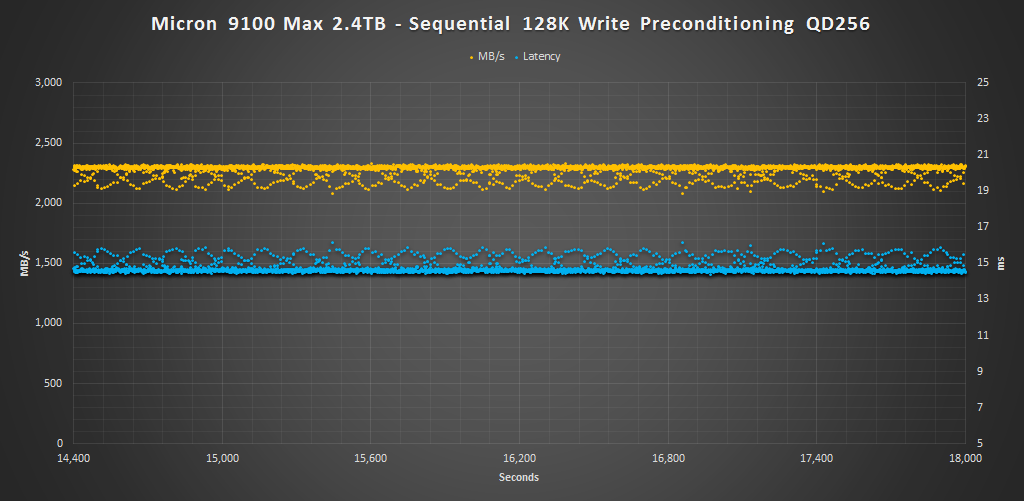128KB SEQUENTIAL READ/WRITE
Sequential performance is measured similarly to the other two tests before. The drive is first secure erased to get it in a clean state. Next, we precondition the drive with a 128KB sequential write workload at QD256 until the drive is in a steady state. Finally, we cycle through QD1-256 for 5 minutes each for writes and then reads. All this is scripted to run with no breaks in between. The last hour of preconditioning, the average MB/s, and average latency for each QD is graphed below.
Sequential results are well above Micron’s rating with an average of 2.2GB/s throughput with latency at an average of 14.6ms as well.
Here we can see that the Intel DC P3608 is the clear winner in terms of bandwidth performance with its PCIe 3.0 x8 interface it is able to deliver speeds that are nearly twice that of the rest of our test pool. Looking at the 9100 MAX, however, it does quite well, but has weaker performance than that of the other SSDs in our drive pool from QD1-4. It beats out the SN100 form QD8-32, but not the Techman XC100 until after QD32. The latencies above show the Flashtec NVMe1032 SSDs share similar results.
Just as in the 4K and 8K random tests, we can see that during sequential write testing the Micron 9100 MAX delivers very strong performance from QD4 on, but is lagging behind slightly at QD1-2. In addition, it again beats out its rating of 2GB/s and averages about 2.3GB/s write.
 The SSD Review The Worlds Dedicated SSD Education and Review Resource |
The SSD Review The Worlds Dedicated SSD Education and Review Resource | 

